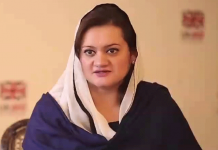On Tuesday, the United Nations named three women to lead a rights investig
ation into Iran’s violent crackdown on women-led protests, which have roiled the
Islamic republic for more than three months.
The fact-finding mission will be led by Banglades
h Supreme Court lawyer Sara Hossain, Pakistani law professor Shaheen Sardar Ali, and Argentine rights activist Viviana Krsticevic, according to UN Human Rights Council head Federico Villegas.
The investig
ation will be led by Hossain, a long-time human rights activist, according to the council presiden
cy.
Iran is highly unlikely to allow the tri
o to enter the country and carry out their mission, with Tehran fiercely opposing the cre
ation of the international investig
ation that 47 rights council members voted for last month.
The three women will document the Iranian authorities’ repression of the protests and potential human rights violations with a view to possible legal action against officials in Iran or elsewhere.
Mass protests have swept across the country since September, following the death in custody of Iranian-Kurdish woman Mahsa Amini, resulting in violent and sometimes deadly clashes with security forces.
The 22-year-old was arrested by Iran’s morality police for allegedly breaking strict rules about correctly wearing the
Islamic headscarf, sparking nationwide protests in support of women’s rights.
Authorities have executed some protesters and sentenced others to death for their roles in what they call riots instigated by arch-foes Israel and the United States.
Human rights organizations say legal procedures have been rushed and confessions obtained under torture.
The United Nations estimates that around 14,000 people have been arrested since mid-September, while Oslo-based NGO Iran Human Rights says 469 protesters have been killed.
Who is Shaheen Sardar Ali?
Shaheen is a law professor at the University of Warwick in the United Kingdom who specializes in
Islamic law, human rights, and the rights of women and children.
In Pakistan, she was the First Chairperson/Minister of State, National Commission on the Status of Women (2000-2001), and the Khyber Pakhtunkhwa Government’s first female cabinet Minister for Health, Popul
ation Welfare, and Women’s Development.
She served as a member and Vice-Chair of the United Nations Working Group on Arbitrary Detention from 2008 to 2014, and she has advised numerous national and international organizations.
Shaheen has a Ph.D. in International Law, from the University of Hull, United Kingdom (1998), and is a member of the editorial boards of the Arab Law Quarterly and the Journal of
Islamic State practices in International Law.
She is fluent in English, Urdu, Pashto, and Punjabi can read and write Arabic, and has a working knowledge of Persian (Farsi).
